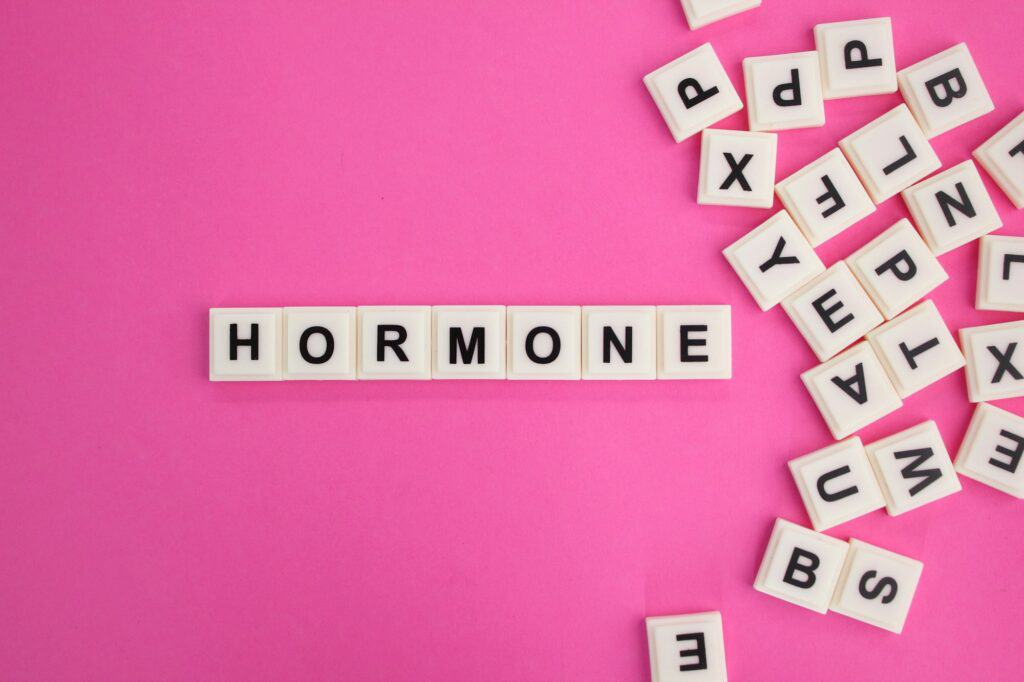Hormonal balance is not merely a buzzword; it’s a fundamental aspect of overall health that influences virtually every bodily function. From regulating metabolism and managing stress to controlling mood and supporting reproductive health, hormones play a pivotal role in our well-being. Yet, maintaining optimal hormonal balance is often overlooked or misunderstood in today’s fast-paced world. In this blog post, we’ll delve into why achieving and maintaining hormonal balance is crucial for our health and vitality.
Understanding Hormonal Balance: A Primer
Hormonal balance refers to the equilibrium of various hormones within the body, ensuring they are present in appropriate quantities and ratios to support optimal bodily functions. Hormones act as chemical messengers, regulating processes such as metabolism, growth, mood, and reproduction.
Achieving and maintaining hormonal balance is crucial for overall health and well-being, as even slight deviations can lead to various health issues. Factors such as genetics, diet, lifestyle, stress, and environmental toxins can all impact hormonal balance. Understanding the fundamentals of hormonal balance sets the stage for implementing strategies to support it, promoting vitality and longevity.
The Significance of Hormones in Health
Hormones are integral to virtually every aspect of health, orchestrating processes ranging from growth and development to metabolism and reproduction. They regulate functions such as appetite, sleep, mood, and immune response, ensuring the body operates harmoniously.
Even minor imbalances in hormone levels can disrupt these processes, leading to a myriad of health issues. Hormonal health is thus paramount for overall well-being, underscoring the importance of maintaining optimal hormone levels through lifestyle choices, dietary habits, and stress management techniques.
Hormonal Imbalance: Causes and Effects
Hormonal imbalance occurs when there is either too much or too little of a particular hormone circulating in the bloodstream. This imbalance can be caused by various factors, including stress, poor diet, lack of exercise, medical conditions, and certain medications.
The effects of hormonal imbalance can manifest in a wide range of symptoms, including weight gain or loss, mood swings, fatigue, irregular periods, and difficulty concentrating. Identifying the root cause of hormonal imbalance is crucial for effective treatment and management, often requiring lifestyle changes, hormone replacement therapy, or other interventions to restore equilibrium and promote optimal health.

Hormones and Metabolism: The Weight Connection
Hormones play a significant role in regulating metabolism, the process by which the body converts food into energy. Key hormones involved in metabolism include insulin, thyroid hormones, cortisol, and leptin. Imbalances in these hormones can disrupt metabolic processes, leading to weight gain or difficulty losing weight.
For example, insulin resistance can impair the body’s ability to regulate blood sugar levels, contributing to obesity and diabetes. Understanding the interplay between hormones and metabolism is essential for addressing weight-related issues and promoting a healthy body composition.
Stress Hormones: Managing Cortisol Levels
Cortisol, often referred to as the stress hormone, plays a crucial role in the body’s response to stress. While cortisol is essential for regulating metabolism, immune function, and inflammation, chronically elevated levels can have detrimental effects on health. Prolonged stress can lead to dysregulation of cortisol levels, contributing to conditions such as adrenal fatigue, anxiety, depression, and sleep disturbances.
Effective stress management techniques, such as mindfulness, relaxation exercises, regular physical activity, and adequate sleep, are essential for maintaining healthy cortisol levels and mitigating the negative impact of chronic stress on overall well-being.
Mood Matters: Hormonal Influence on Emotional Well-being
Hormones exert a profound influence on mood and emotional well-being, affecting neurotransmitter activity in the brain. Serotonin, dopamine, and norepinephrine are neurotransmitters closely linked to mood regulation, and their levels are influenced by various hormones, including estrogen, progesterone, and testosterone. Fluctuations in hormone levels throughout the menstrual cycle, pregnancy, and menopause can contribute to mood swings, irritability, and depression in women.
Similarly, imbalances in testosterone levels can affect mood stability and emotional resilience in men. Understanding the hormonal basis of mood disorders is essential for implementing targeted interventions to support mental health and emotional well-being.
Hormonal Harmony: Supporting Reproductive Health
Reproductive hormones play a central role in fertility, menstruation, pregnancy, and sexual health. Hormones such as estrogen, progesterone, follicle-stimulating hormone (FSH), and luteinizing hormone (LH) orchestrate the menstrual cycle and ovulation in women, while testosterone regulates sperm production and libido in men.
Imbalances in reproductive hormones can disrupt menstrual cycles, impair fertility, and contribute to conditions such as polycystic ovary syndrome (PCOS) and erectile dysfunction. Maintaining hormonal balance is essential for optimizing reproductive health and supporting fertility and sexual function.
Hormones and Sleep: The Sleep-Wake Cycle Connection
Hormones regulate the sleep-wake cycle, or circadian rhythm, by signaling the brain that it’s time to rest. Melatonin initiates and maintains sleep by signaling to the brain that it’s time to rest. Cortisol levels fluctuate throughout the day, with peak levels in the morning and declining levels in the evening.
Disruptions in hormonal balance, like stress or artificial light exposure, can impair sleep quality and contribute to insomnia and sleep disorders. Prioritizing healthy sleep habits, such as consistent sleep schedules, a conducive sleep environment, and relaxation techniques, is crucial for optimizing hormonal balance.
Hormones and Energy: Vitality and Fatigue
Hormones play a crucial role in regulating energy levels and vitality, influencing factors such as metabolism, blood sugar regulation, and adrenal function. Thyroid hormones, for example, help regulate metabolism and energy production, while insulin facilitates the uptake of glucose into cells for energy.
Adrenal hormones, including cortisol and adrenaline, play a role in the body’s stress response and energy mobilization. Imbalances in these hormones can lead to fatigue, lethargy, and decreased motivation, impacting overall quality of life. Adopting lifestyle habits that support hormonal balance, such as eating a balanced diet, getting regular exercise, managing stress, and prioritizing adequate sleep, is essential for maintaining optimal energy levels and vitality.
Hormonal Changes Throughout Life: From Puberty to Menopause
Hormonal fluctuations occur naturally throughout life, from puberty to menopause. During puberty, hormonal changes cause physical and emotional transformations, such as growth spurts and mood swings. In women, these fluctuations continue throughout the menstrual cycle, with estrogen and progesterone levels fluctuating.
Menopause marks a significant shift, with declining estrogen levels causing symptoms like hot flashes and mood disturbances. Understanding and managing these changes is crucial for promoting physical and emotional well-being and navigating the unique challenges associated with hormonal fluctuations.
Hormonal Disruption: Environmental and Lifestyle Factors
Environmental and lifestyle factors can disrupt hormonal balance, leading to health issues like reproductive disorders, metabolic disturbances, and cancer. Endocrine-disrupting chemicals (EDCs) found in plastics, personal care products, and pesticides can interfere with hormone production.
Poor diet, sedentary lifestyle, chronic stress, and sleep deprivation can also exacerbate these issues. Minimizing EDC exposure, adopting healthy habits, and reducing stress are crucial for maintaining hormonal health and overall well-being.
Balancing Hormones Naturally: Diet and Lifestyle Strategies
Hormonal balance is significantly influenced by diet and lifestyle. A balanced diet with whole foods, fiber, healthy fats, and protein supports hormone synthesis and regulation. Regular physical activity maintains body composition, improves insulin sensitivity, and reduces stress hormone levels.
Adequate sleep, stress management, and mindfulness practices optimize circadian rhythm function and reduce cortisol levels. Integrating these strategies into daily routines promotes hormonal health and overall well-being.
Hormones and Exercise: Optimizing Physical Activity
Exercise significantly impacts hormonal balance, affecting hormone secretion, receptor sensitivity, and metabolism. It stimulates the release of endorphins, neurotransmitters that promote well-being and reduce stress. Exercise also enhances insulin sensitivity, facilitating glucose uptake and reducing circulating insulin levels. Resistance training promotes growth hormone secretion, crucial for muscle growth and metabolism.
Consistent exercise can regulate hormone levels, improve mood, support weight management, and reduce chronic disease risk. Personalized exercise routines, including cardiovascular, strength, and flexibility exercises, optimize hormonal health and maximize physical activity benefits.
Hormonal Health and Mental Clarity: Cognitive Function and Focus
Hormones, such as estrogen and progesterone, are essential for cognitive function and mental clarity. Estrogen and progesterone have neuroprotective effects, while testosterone regulates mood and spatial awareness. Thyroid hormones affect brain development and cognition, with imbalances leading to cognitive impairment and mood disorders.
Maintaining hormonal balance through healthy lifestyle habits like exercise, nutrition, stress management, and sleep is crucial for preserving cognitive function and promoting mental clarity.
Hormones and Aging: Maintaining Vitality Over Time
Aging is associated with changes in hormone levels and hormonal function, contributing to age-related decline in physical and cognitive function. Declining levels of growth hormone, testosterone, estrogen, and thyroid hormones can lead to reduced muscle mass, bone density, metabolic rate, and cognitive function. Additionally, imbalances in cortisol and insulin sensitivity may increase the risk of age-related diseases such as diabetes, cardiovascular disease, and dementia.
Supporting hormonal health through lifestyle interventions, such as regular exercise, balanced nutrition, stress management, and hormone replacement therapy when indicated, can help mitigate age-related hormonal changes and promote vitality, longevity, and quality of life.
Seeking Balance: Hormonal Testing and Treatment Options
Hormonal imbalance symptoms can be identified through professional guidance and hormonal testing. Tests may involve blood, saliva, or urine tests to assess hormone levels. Treatment options may include lifestyle modifications, dietary changes, hormone replacement therapy, or medications.
Integrative approaches like acupuncture, herbal medicine, and mind-body therapies can also be used. Working closely with healthcare providers and hormone specialists can help individuals navigate the complexities of hormonal health and tailor treatment plans to their unique needs and preferences.
Understanding the importance of hormonal balance is pivotal for optimizing health and well-being. Whether you’re aiming to manage weight, improve mood, enhance reproductive health, or boost vitality, maintaining hormonal equilibrium is essential. At ActiveMed Integrative Health Center in Encinitas, we specialize in natural medical services designed to support your journey towards hormonal balance and overall wellness.
Take the first step towards a healthier you by contacting us today at 858-673-4400 or emailing info@activemedhealth.com. Let ActiveMed be your partner in achieving optimal hormonal balance and embracing a life of vitality and vitality.



